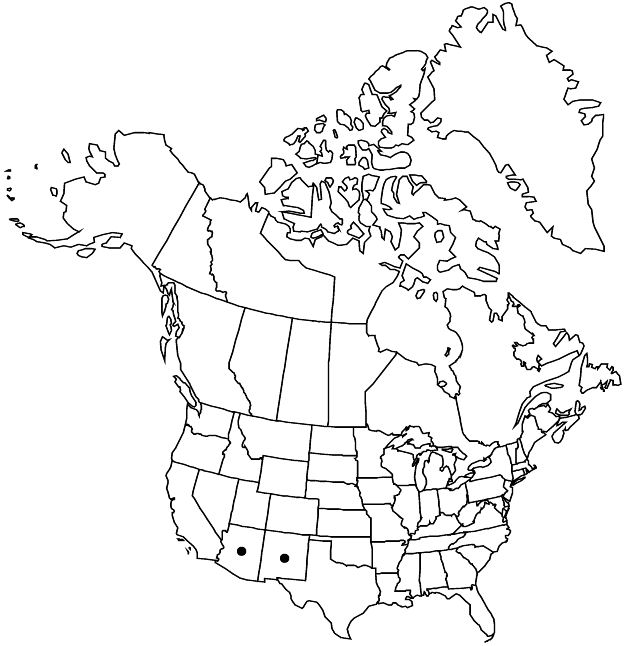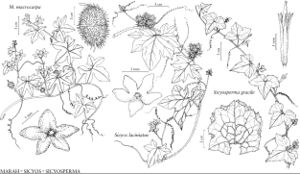Difference between revisions of "Sicyosperma gracile"
Smithsonian Contr. Knowl. 5(6): 62. 1853.
FNA>Volume Importer |
imported>Volume Importer |
||
| (3 intermediate revisions by 2 users not shown) | |||
| Line 9: | Line 9: | ||
|special_status={{Treatment/ID/Special_status | |special_status={{Treatment/ID/Special_status | ||
|code=F | |code=F | ||
| − | |label= | + | |label=Illustrated |
}} | }} | ||
|basionyms= | |basionyms= | ||
| Line 36: | Line 36: | ||
-->{{#Taxon: | -->{{#Taxon: | ||
name=Sicyosperma gracile | name=Sicyosperma gracile | ||
| − | |||
|authority=A. Gray | |authority=A. Gray | ||
|rank=species | |rank=species | ||
| Line 50: | Line 49: | ||
|publication title=Smithsonian Contr. Knowl. | |publication title=Smithsonian Contr. Knowl. | ||
|publication year=1853 | |publication year=1853 | ||
| − | |special status= | + | |special status=Illustrated |
| − | |source xml=https:// | + | |source xml=https://bitbucket.org/aafc-mbb/fna-data-curation/src/2e0870ddd59836b60bcf96646a41e87ea5a5943a/coarse_grained_fna_xml/V6/V6_42.xml |
|genus=Sicyosperma | |genus=Sicyosperma | ||
|species=Sicyosperma gracile | |species=Sicyosperma gracile | ||
Latest revision as of 22:21, 5 November 2020
Leaf blades 2–7 cm wide, lobe apex rounded to acute. Inflorescences: each flower loosely enclosed within 2 bracts; peduncle hispid, hairs retrorsely curved. Flowers: petals apically 2-fid, corolla 2–3 mm diam. Pepos 4–5 mm, loosely enclosed by persistent bracts.
Phenology: Flowering Aug–Oct(–Nov).
Habitat: North slopes, cliff bases, canyon bottoms, stream sides, riparian scrub, willow-ash, cottonwood-willow, hackberry-acacia, oak woodlands
Elevation: 1000–1700 m
Distribution

Ariz., N.Mex., Mexico (Chihuahua, Sonora).
Discussion
Sicyosperma gracile is recognized by its annual duration, minute salverform corollas with white, apically bifid petals, each flower enclosed within a pair of basally cordate bracts, and relatively small, 1-seeded, dry, indehiscent, unarmed pepos loosely enclosed by bracts. Specimens sometimes show only staminate inflorescences, but apparently this is an artifact of collection rather than an indication that the plant is unisexual.
Selected References
None.
